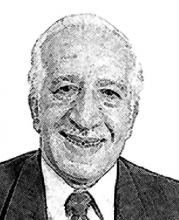You are here
Raising the spectre of war as a tactic
Feb 13,2016 - Last updated at Feb 13,2016
Russian Prime Minister Dmitri Medvedev used a new scare tactic to force the US administration to refrain from interfering in the Syrian civil war.
He raised the spectre of another world war, sparked by the Arab, Iranian and Iraqi meddling in the Syrian civil war.
Medvedev knows that US President Barack Obama, in the last leg of his presidency, is committed against any casualty among American soldiers, as well as an adherence to a motto of clean record of his tenure.
The Russian message to the Arab leaders is resounding: Moscow does not abandon its friends even if that loyalty costs the heaviest of sacrifices.
With the recurrent volte-face of other powers concerning the removal of Syrian President Bashar Assad, Medvedev’s statements carry more significance, as they reveal Moscow’s determination to expand its military bases in Latakia, Humeimeen and air base in Qalamon.
If the Gulf states and Turkey wish to talk about the future of Damascus, they need to go to the correct new address, which is the Kremlin, rather than the old ones, which used to be Paris, London or Washington.
The Syrian political opposition groups and their armed militias complain that their patrons are not providing them with anti- aircraft missiles to staunch the daily bombing of their positions with Assad’s chemical barrel bombs, or with Russian Sukhoi 24 laser-guided missiles.
Facts dictate that unless Moscow feels the size of casualties among its “Spetsnaz” special forces, it will not compromise on its political stand in Syria.
The American secretary of state, John Kerry, hopes that Russia will stop its carpet bombing of Aleppo’s surroundings, which are the last stronghold of anti-Daesh fighters.
Moscow justifies its actions by the anti-Assad stand those fighters represent.
But those militias are the only ground troops left to face Daesh, and their contribution is vital, since the Kurdish militias are not in a position to defeat single-handedly a monster like Daesh.
The Syrian opposition suspended talks with the United Nations envoy Staffan de Mistura in Geneva in protest against a breach of his pledge to have humanitarian corridors operational to provide food and medicine to the besieged nine cities of Sunni Muslims.
A second stipulation was an end to Russian bombing of civilian targets in Damascus and Aleppo.
At the Munich talks this week regarding the Syrian civil war, Kerry managed to get a commitment from his Russian counterpart to allow humanitarian corridors and to stop the bombing within a week.
Syrians will not be surprised if that will not be the case.













